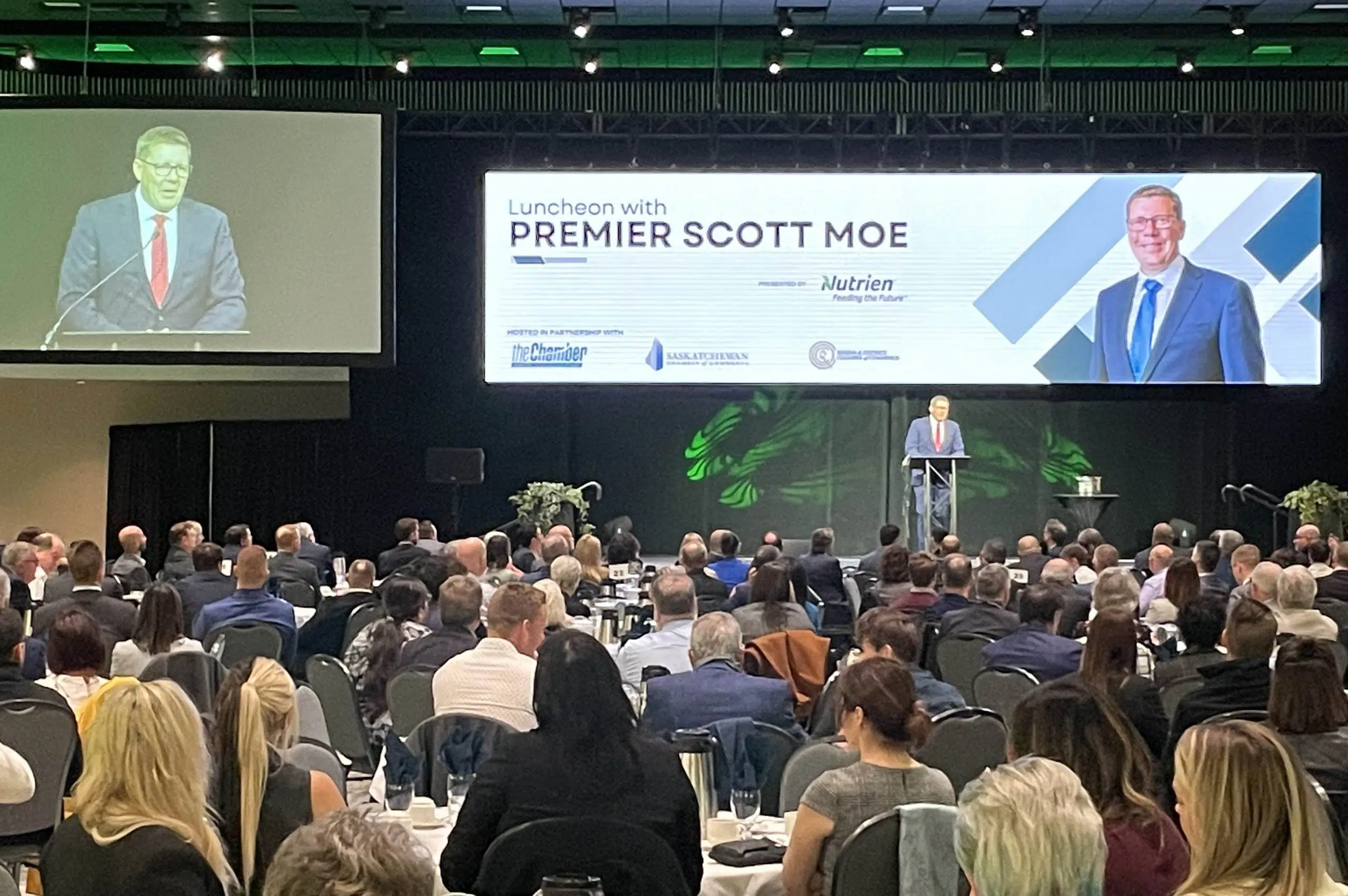Premier Scott Moe touted Saskatchewan’s economic successes Monday during a speech at a luncheon hosted by the Saskatchewan Chamber of Commerce in Saskatoon.
Moe said Saskatchewan has a significant contribution to make to global problems like energy and food insecurity with its cleanly produced resources like potash, oil, and soon, rare earth minerals.
The province saw its biggest single-quarter growth in population since 1971 recently, with 6,500 people coming to the province. That means Saskatchewan is on track to hit a population of 1.2 million this fiscal year, and increase that again to 1.4 million by the forecasted 2030 goal.
A different goal set for 2030 was already hit this year: $9 billion in annual potash sales.
Moe teased his speech from the throne — set to be delivered Wednesday — by saying Saskatchewan is continuing its international engagement by opening a new trade office in Europe in the next few months.
And Saskatchewan reportedly has the lowest unemployment in Canada, with a rate of 4.1 per cent.
However, there is a resource Saskatchewan is currently lacking.
“We’re not short of jobs. We’re short of people,” Moe said.
The province is taking steps now, having put a new immigration accord in front of Canada’s immigration minister, Sean Fraser, to address how to bring more skilled workers to Saskatchewan.
The accord, called the Canada-Saskatchewan Accord, is meant to be very similar to the 1991 Canada-Quebec Accord relating to immigration and temporary admission of aliens.
“We want to ensure that we as a province are fulfilling our right that we have within the Constitution to develop the natural resources that we’re so blessed with in Saskatchewan,” Moe explained.
He said the accord “would increase our number of eligible provincially prioritized immigrants in Saskatchewan” from about 6,000 to 13,000.
Moe described the accord as asking the federal government to work with the people, industries and investments being made in Saskatchewan “to ensure that our province and the people here can continue to produce the most sustainable products that we do.”
Whether uranium, potash or agricultural exports, Moe said in almost all cases, Saskatchewan products are produced with a lower carbon footprint and “more sustainably than they are in other areas of the world.”
He wants the province to continue to unlock its potential by bringing skilled workers here over whom the provincial government has more say.
A piece of legislation relating to that is coming in the fall session, Moe said, to “expand the certainty that companies have that are investing in Saskatchewan that the provincial area of jurisdiction on developing natural resources is just that.”











